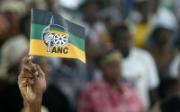
THERE is a narrative I have often heard in some former anti-apartheid activist circles about how a high-handed and disconnected exile contingent of the African National Congress (ANC) walked back into SA and dismantled vibrant internal grassroots democracy during the 1990s transition.
These former activists argue that the genesis of antidemocratic, elitist practice in the ANC can be traced back to this phase, in which the exiled ANC supposedly failed to recognise the "homegrown" internal democracy of "people’s" structures as constituted in street committees, civic structures and the United Democratic Front.
This "high-handed exiles" narrative always sounded simplistic to me for a number of reasons. First, although there was a political demarcation between "internal" and "exile", in reality, activists and members of Umkhonto we Sizwe were constantly coming and going. There was a continuous pipeline between internal and exile that was necessary for anti-apartheid activity. When the ANC was unbanned in 1990, many returnees were recognised by their local communities as legitimate leaders even though they had been operating invisibly. Further, in a context in which the state had for decades unleashed ferocious violence in black areas, by the 1980s violence had been taken up not only as a defensive measure by liberation movements but it had also entrenched itself in destructive ways as a method of community control by local leaders.
In my own village, local committees presided over kangaroo courts that dealt not only with crime and izimpimpi (police spies), but allegations of witchcraft, adultery and other interpersonal disputes. One of the most frightening punishments was "ukumodela" (modelling), in which young men would strip their girlfriends naked and force them to walk through the village to humiliate them for adultery. Other transgressions were punished at a hilltop where the community would gather to sjambok or hack the "wrongdoer" to death.
That the ANC attempted to impose some kind of order and unity in this dark cycle of violence makes sense; though this would no doubt have made some people unhappy. In these violent scenarios, internal ANC leaders worked hand in hand with returnees to create some kind of stability for negotiations.
But in other contexts it was clear that returnees were woefully out of touch with the SA they had once left behind. In Shireen Hassim’s book, Women’s Organisations and Democracy in SA, it is shown how tensions arise in the women’s activist movement in the 1990s as some who had been in exile and had prominence expected to be leaders even though they had little experience with organising in SA.
However, the decision to collapse autonomous civic women’s movements under the banner of the newly unbanned ANC Women’s League happened not by imposition, but through a process of messy but considered decision making.
In hindsight it may appear there were short-term victories only as so much progressive legislation was shaped in that transition period of the first democratic Parliament, before the league succumbed to the muted politics of today.
However, it is doubtful that the independent women’s movements of the 1980s would have been able to sustain their organising capacity in any case, let alone drive a mass-supported agenda for women after apartheid. So much community organising of the 1980s was catalysed by resistance to the apartheid state. Today black communities have undergone seismic social, political and economics shifts.
If one looks at the present state of civic organisations, social movements and what one might call the traditional "left" right now, it is clear that civil society outside of party politics is gravely weak due to its own tactical missteps and entrapment in irrelevant donor-funded activist approaches.
It is dubious logic to look into the past and blame the ANC and its "exile" contingent for "shutting down" the grassroots space. The fact is that the so-called vibrant internal democracy of the 1980s is composed of equal parts fact, myth and nostalgia.
By Nomalanga Mkhize
Picture: DAILY DISPATCH
Source: Business Day
Mkhize is a lecturer in the history department at Rhodes 老虎机游戏_pt老虎机-平台*官网.
